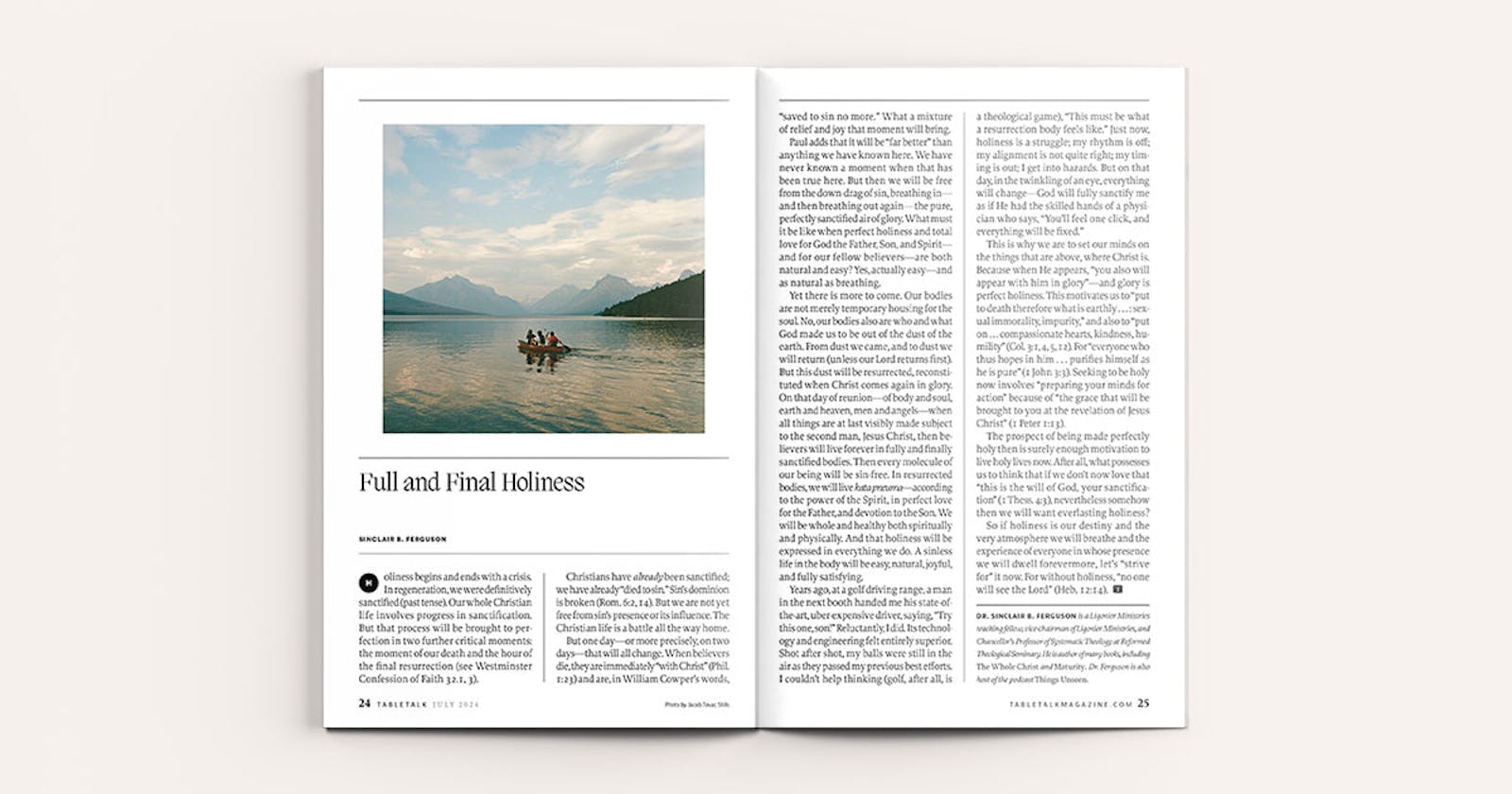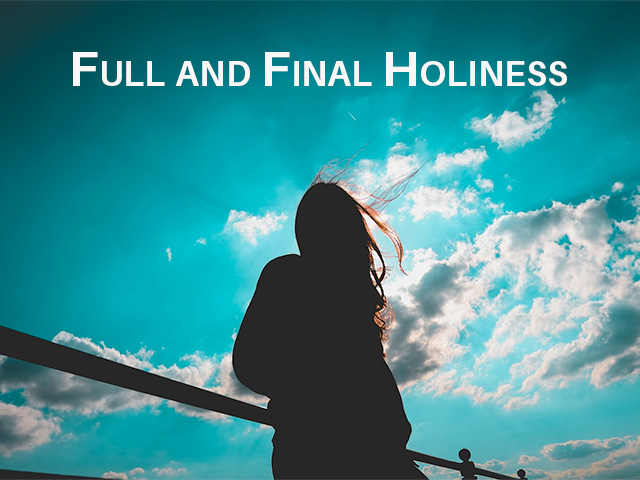Full and Final Holiness
From TABLETALK
Holiness begins and ends with a crisis. In regeneration, we were definitively sanctified (past tense). Our whole Christian life involves progress in sanctification. But that process will be brought to perfection in two further critical moments: the moment of our death and the hour of the final resurrection (see Westminster Confession of Faith 32.1, 3).
Christians have already been sanctified; we have already “died to sin.” Sin’s dominion is broken (Rom. 6:2, 14). But we are not yet free from sin’s presence or its influence. The Christian life is a battle all the way home.
But one day—or more precisely, on two days—that will all change. When believers die, they are immediately “with Christ” (Phil. 1:23) and are, in William Cowper’s words, “saved to sin no more.” What a mixture of relief and joy that moment will bring.
Paul adds that it will be “far better” than anything we have known here. We have never known a moment when that has been true here. But then we will be free from the down-drag of sin, breathing in—and then breathing out again—the pure, perfectly sanctified air of glory. What must it be like when perfect holiness and total love for God the Father, Son, and Spirit—and for our fellow believers—are both natural and easy? Yes, actually easy—and as natural as breathing.
When all things are at last visibly made subject to the second man, Jesus Christ, then believers will live forever in fully and finally sanctified bodies.
Yet there is more to come. Our bodies are not merely temporary housing for the soul. No, our bodies also are who and what God made us to be out of the dust of the earth. From dust we came, and to dust we will return (unless our Lord returns first). But this dust will be resurrected, reconstituted when Christ comes again in glory. On that day of reunion—of body and soul, earth and heaven, men and angels—when all things are at last visibly made subject to the second man, Jesus Christ, then believers will live forever in fully and finally sanctified bodies. Then every molecule of our being will be sin-free. In resurrected bodies, we will live kata pneuma—according to the power of the Spirit, in perfect love for the Father, and devotion to the Son. We will be whole and healthy both spiritually and physically. And that holiness will be expressed in everything we do. A sinless life in the body will be easy, natural, joyful, and fully satisfying.
Years ago, at a golf driving range, a man in the next booth handed me his state-of-the-art, uber-expensive driver, saying, “Try this one, son!” Reluctantly, I did. Its technology and engineering felt entirely superior. Shot after shot, my balls were still in the air as they passed my previous best efforts. I couldn’t help thinking (golf, after all, is a theological game), “This must be what a resurrection body feels like.” Just now, holiness is a struggle; my rhythm is off; my alignment is not quite right; my timing is out; I get into hazards. But on that day, in the twinkling of an eye, everything will change—God will fully sanctify me as if He had the skilled hands of a physician who says, “You’ll feel one click, and everything will be fixed.”

This is why we are to set our minds on the things that are above, where Christ is. Because when He appears, “you also will appear with him in glory”—and glory is perfect holiness. This motivates us to “put to death therefore what is earthly . . . : sexual immorality, impurity,” and also to “put on. . . compassionate hearts, kindness, humility” (Col. 3:1, 4, 5, 12). For “everyone who thus hopes in him . . . purifies himself as he is pure” (1 John 3:3). Seeking to be holy now involves “preparing your minds for action” because of “the grace that will be brought to you at the revelation of Jesus Christ” (1 Peter 1:13).
The prospect of being made perfectly holy then is surely enough motivation to live holy lives now. After all, what possesses us to think that if we don’t now love that “this is the will of God, your sanctification” (1 Thess. 4:3), nevertheless somehow then we will want everlasting holiness?
So if holiness is our destiny and the very atmosphere we will breathe and the experience of everyone in whose presence we will dwell forevermore, let’s “strive for” it now. For without holiness, “no one will see the Lord” (Heb. 12:14).


Recent Comments